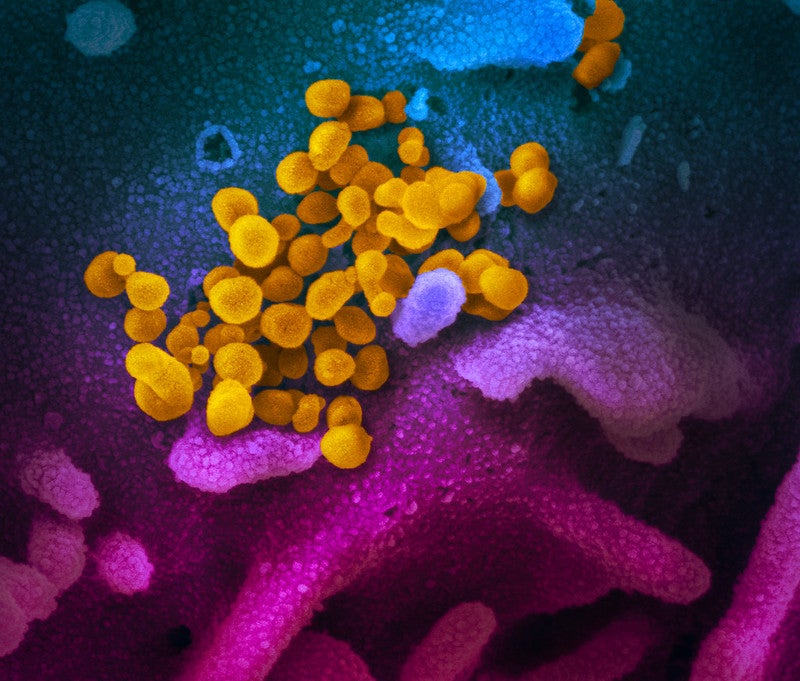
Visit our Covid-19 microsite for the latest coronavirus news, analysis and updates
Follow the latest updates of the outbreak on our timeline.

Discover B2B Marketing That Performs
Combine business intelligence and editorial excellence to reach engaged professionals across 36 leading media platforms.
A study led by the US National Institutes of Health found that the novel coronavirus that causes Covid-19 can be viable in air for several hours and on surfaces for days.
The team, which included researchers from CDC, UCLA and Princeton University, revealed that SARS-CoV-2 remained stable in aerosols for up to three hours.
On copper, the virus could be detected for up to four hours, up to 24 hours on cardboard, and up to two to three days on plastic and stainless steel.
The scientists compared the effect of the environment on SARS-CoV-1, which causes SARS, and SARS-CoV-2.

US Tariffs are shifting - will you react or anticipate?
Don’t let policy changes catch you off guard. Stay proactive with real-time data and expert analysis.
By GlobalDataSARS-CoV-1 emerged from China and caused more than 8,000 infections in 2002 and 2003. The virus is similar to SARS-CoV-2.
The study found that the two viruses behaved similarly, raising concerns about why SARS-CoV-2 led to a pandemic.
During the study, the team tried to mimic the virus deposited from an infected person onto everyday surfaces in a household or hospital setting, such as through coughing or touching objects.
According to findings, Covid-19 patients may be spreading the virus without knowing, or prior to identifying, symptoms. This will make the control measures used for SARS-CoV-1 less effective against the new coronavirus.
Unlike the SARS virus, majority of the SARS-CoV-2 secondary cases are found in community settings instead of healthcare settings.
A statement from NIH read: “However, healthcare settings are also vulnerable to the introduction and spread of SARS-CoV-2, and the stability of SARS-CoV-2 in aerosols and on surfaces likely contributes to transmission of the virus in healthcare settings.
“The findings affirm the guidance from public health professionals to use precautions similar to those for influenza and other respiratory viruses to prevent the spread of SARS-CoV-2.”




